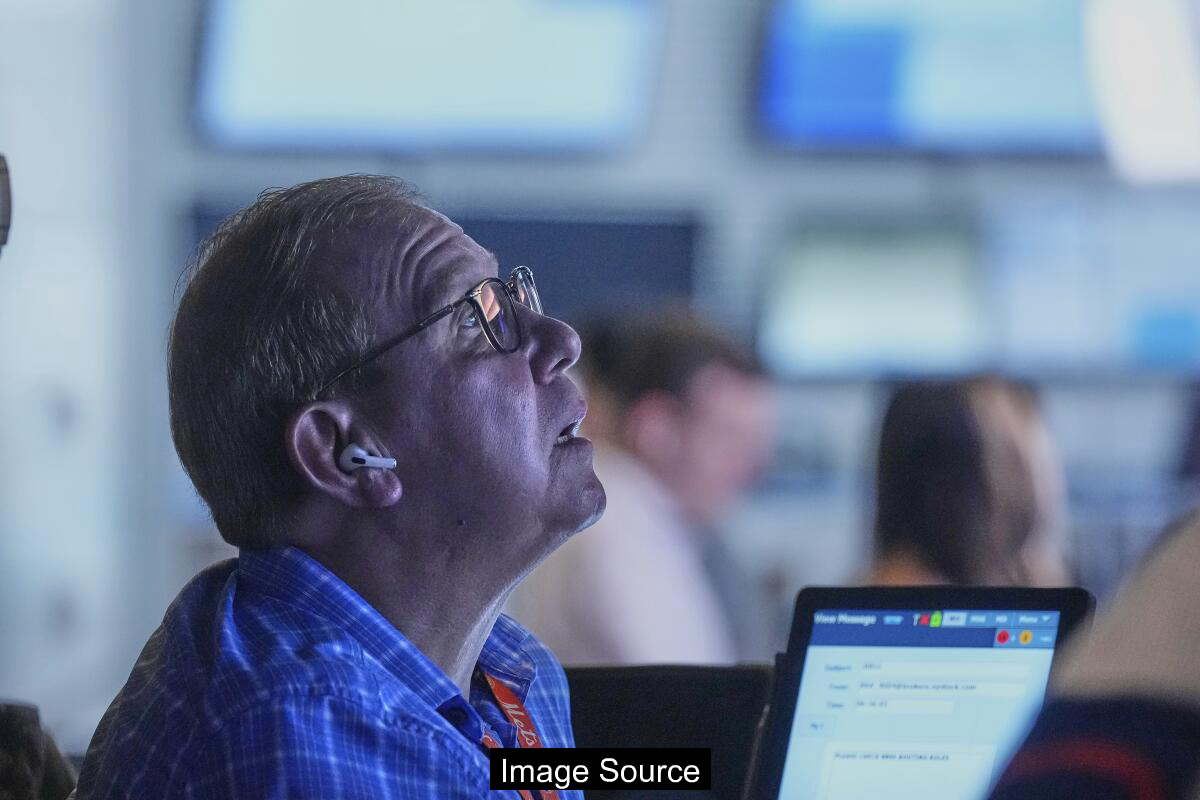U.S. stock markets experienced a midday turnaround as technology and artificial intelligence-related shares rebounded from morning declines. The Nasdaq Composite and S&P 500 indexes gradually recovered ground, with prominent AI-linked companies like Nvidia and Microsoft helping to drive the market sentiment.

Market Dynamics: AI Stocks and Volatility
Stock indexes experienced significant fluctuations on Wednesday, with major indices ending mixed after a turbulent trading session. The S&P 500 dipped 0.2%, the Dow Jones Industrial Average added marginally, and the Nasdaq composite fell 0.7%. The day’s market movements were predominantly driven by artificial intelligence technology stocks, particularly Nvidia and Palantir.
Nvidia, a critical player in AI chip technology, demonstrated substantial intraday volatility. The stock initially dropped as much as 3.9% but ultimately recovered to close with a minimal 0.1% decline. This recovery was significant because Nvidia represents the most influential stock on Wall Street, effectively impacting broader market indexes.
An MIT study highlighted potential underlying market concerns, suggesting that most corporations have not yet realized measurable returns from generative AI investments. Additionally, market analysts speculated that the rapid price appreciation of AI stocks might have outpaced fundamental valuations, contributing to the day’s market uncertainty.
Retail Sector Performance
The retail sector presented a mixed performance, with several prominent companies reporting varied financial results. TJX, the parent company of TJ Maxx and Marshalls, demonstrated strong performance by beating analysts’ forecasts and raising its full fiscal year profit projection. CEO Ernie Herrman emphasized robust demand across U.S. and international markets.
Lowe’s marginally increased by 0.3% after delivering a quarterly profit that exceeded analyst expectations. Conversely, Target experienced significant challenges, announcing a leadership transition with CEO Brian Cornell stepping down in February, to be replaced by 20-year veteran Michael Fiddelke.
Other notable retail performances included Estee Lauder, which dropped 3.7% after providing a fiscal year profit forecast below Wall Street estimates, and La-Z-Boy, which declined 12.1% due to underwhelming spring quarter results.
Frequently Asked Questions: Market Trends
Q1. What factors are currently influencing stock market volatility?
A1. Key drivers include AI technology investments, retail sector performance, potential interest rate changes, and global economic uncertainties.
Q2. How are AI stocks performing in the current market?
A2. AI stocks like Nvidia and Palantir have experienced significant price fluctuations, reflecting both excitement about technological potential and concerns about immediate financial returns.
Federal Reserve and Interest Rate Outlook
The upcoming week’s most anticipated event is Federal Reserve Chair Jerome Powell’s speech in Jackson Hole, Wyoming. Market participants are eagerly awaiting potential hints about future interest rate adjustments. The Federal Reserve has maintained steady interest rates throughout the year, primarily due to concerns about potential inflationary pressures.
Recent weak job growth reports might influence the Fed’s monetary policy decisions. Treasury yields have already responded to market expectations, with the 10-year Treasury yield experiencing a slight decline.
Political dynamics are also playing a role, with former President Trump consistently advocating for lower interest rates and publicly criticizing Federal Reserve leadership. These political pressures add another layer of complexity to monetary policy considerations.
Global Market Perspectives
International stock markets displayed mixed performance across Europe and Asia. The London FTSE 100 rose 1.1% despite higher-than-expected inflation in the United Kingdom, driven by increased airfare and food prices.
In Asia, Hong Kong’s Hang Seng index added 0.2%. Notably, Chinese toy company Pop Mart International Group saw its shares surge 12.5% after its CEO projected annual revenue potentially exceeding $4 billion and announced a new product line.
These global market movements underscore the interconnected nature of international financial markets and the diverse factors influencing investor sentiment across different regions and sectors.
Strategic Summary
The current market landscape is characterized by technological innovation, sectoral performance variations, and anticipation of potential monetary policy shifts. AI stocks continue to be a focal point of investor attention, with ongoing debates about their valuation and future potential.
Retail sector performance remains nuanced, with some companies demonstrating resilience while others face significant challenges. The upcoming Federal Reserve speech will likely provide critical insights into potential economic policy directions.
Investors should remain attentive to technological trends, sector-specific developments, and macroeconomic indicators as they navigate the complex and dynamic financial environment.
※ This article summarizes publicly available reporting and is provided for general information only. It is not legal, medical, or investment advice. Please consult a qualified professional for decisions.
Source: latimes.com